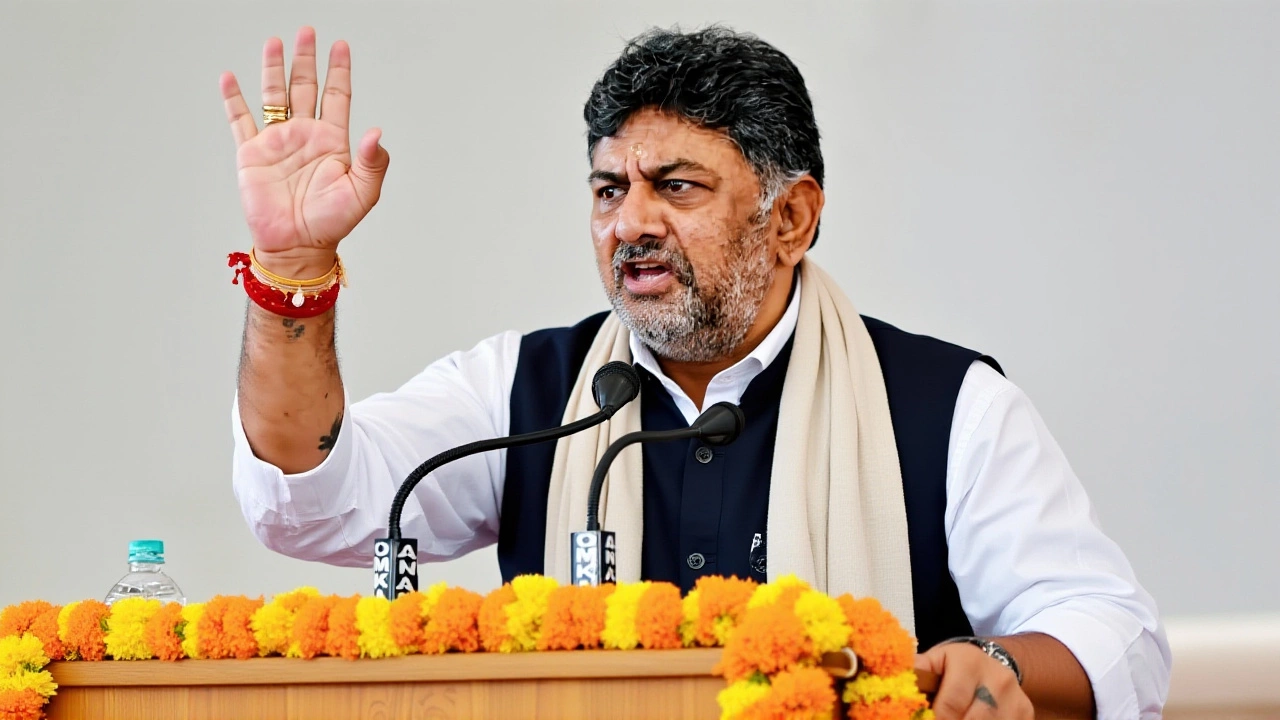When Ghulam Moinuddin, a 40‑year‑old investment‑consultancy owner from Bengaluru, was apprehended on October 13, 2025, the shockwaves hit Indore hard. The Madhya Pradesh Police Crime Branch says he duped local investors of roughly Rs 6 crore through a web of bogus share‑trading firms, promising to double their money within months. Rajesh Dandotiya, Additional Deputy Commissioner of Police, confirmed the arrest followed a technical surveillance sweep that finally cornered the suspect after weeks of hopping between hideouts across Karnataka.
Background to the Investment Scam
The fraud centered on two shell companies – Stage One and Sunrises – both pitched as legitimate stock‑market advisory firms. Moinuddin, a graduate from Raichur district in Karnataka, allegedly leveraged his prior experience running a cooperative bank that was shut down for violating banking regulations. After that setback, he reportedly launched the fake advisory outfits to keep the cash flow alive.
The Arrest and Investigation Details
Police say the suspect had been on the run since early 2025, moving between towns in Karnataka and even using rented apartments to mask his location. A breakthrough came when cyber‑forensics linked a series of WhatsApp numbers used to solicit funds to a SIM registered in Bengaluru. Using signal interception and geolocation data, the Crime Branch traced the call origin to a modest bungalow in Whitefield, leading to his capture on a Monday morning.
At the time of arrest, Moinuddin was booked under Sections 420 (cheating) and 409 (criminal breach of trust) of the Indian Penal Code. Investigators are now seizing both movable and immovable assets – including two premium cars and a plot of land in Hebbal – to recover part of the alleged loss. The police have also started a forensic audit of bank statements linked to the bogus firms, hoping to uncover the exact money trail.
Victims' Testimonies and Impact
Four complainants stepped forward at the Indore Crime Branch office. Rekha Solanki of Arihant Nagar, who invested Rs 1.2 crore, recounted receiving glossy brochures promising a 150 % return in 90 days. "They showed me fake profit‑and‑loss statements, and I thought it was real," she said, shaking her head.
Jitendra Patidar, a small‑business owner from Mahalaxmi Nagar, lost Rs 85 lakh after being convinced the scheme was backed by a reputable stock exchange. "I even introduced a friend, hoping we'd both profit, but it turned into a nightmare," he lamented.
Another victim, Siraj Khan from Khajrana, confessed that he had transferred Rs 45 lakh to a bank account that later turned out to be a dummy. "The promise of doubling my money within three months was too good to ignore," he admitted.
Collectively, the victims allege that they were lured through aggressive online adverts, fake webinars, and personal messages on social media. Police estimates suggest that the total outflow could be as high as Rs 6.4 crore once pending complaints are factored in.

Law Enforcement Response and Broader Context
Inspector Anand Vasuniya, who heads the cyber‑police unit in Indore, highlighted that this case is part of a spate of financial frauds targeting the city. Just last month, authorities nabbed Lokesh Gupta for a Rs 74 lakh share‑market scam, and earlier in the year a Bengaluru‑based firm, NOMOEX Technologies Pvt Ltd, was linked to a ₹1.35 crore cryptocurrency fraud.
"These fraudsters are exploiting the hype around quick returns, especially after the pandemic when many people turned to online investments," Vasuniya explained. He urged citizens to verify the authenticity of any investment platform, avoid transferring money to personal accounts, and report suspicious activity to the cyber helpline 1930.
Legal experts note that sections 420 and 409 carry a maximum penalty of seven years imprisonment and fines up to twice the amount defrauded. However, recovery of the full sum often depends on the speed of asset seizure and the robustness of the forensic audit.
What Comes Next: Ongoing Probes and Prevention Advice
The Crime Branch has opened a parallel investigation to ascertain whether Moinuddin had co‑conspirators operating from other Indian states. They are also scanning financial transaction records of the short‑lived cooperative bank he once ran, suspecting that the initial fraud may have seeded the later share‑trading scam.
Meanwhile, the police have launched a public awareness drive across Madhya Pradesh, partnering with the Securities and Exchange Board of India (SEBI) to host webinars on safe investing. The drive emphasizes three golden rules: (1) only invest through SEBI‑registered brokers, (2) never share OTPs or social‑media credentials, and (3) scrutinize any claim that guarantees returns higher than market averages.
For the victims, the road ahead involves filing civil suits to reclaim lost funds and cooperating with investigators to piece together the fraud network. As the case unfolds, authorities hope the high‑profile arrest will serve as a deterrent, sending a clear signal that financial crimes will be met with swift legal action.
- Suspect: Ghulam Moinuddin, 40, Bengaluru‑based investment consultant
- Charge: Sections 420 & 409 IPC
- Alleged loss: ~Rs 6 crore
- Key victims: Rekha Solanki, Jitendra Patidar, Siraj Khan
- Investigating bodies: Madhya Pradesh Police Crime Branch, Cyber‑Police Unit
Frequently Asked Questions
How does this scam affect small investors in Indore?
Small investors, many of whom rely on savings for education or medical expenses, lost between Rs 45 lakh and Rs 1.2 crore each. The financial hit not only erodes personal wealth but also dampens confidence in legitimate market avenues, prompting many to stay away from stock‑market participation altogether.
What legal steps can victims take to recover their money?
Victims can file civil restitution suits alongside the criminal case. The police are already cataloguing assets tied to the bogus firms; once seized, the court can order their liquidation to compensate victims, though full recovery depends on the total asset pool.
Who else is under investigation for similar frauds?
Investigators suspect that Moinuddin may have collaborated with undisclosed partners in Karnataka and Maharashtra. Parallel probes are examining the cooperative bank he earlier operated and several unregistered online portals that advertised identical high‑return schemes.
What warning signs should investors look for?
Red flags include unsolicited messages promising guaranteed returns, requests for direct bank transfers, and lack of registration with SEBI. Genuine brokers never ask for OTPs or social‑media passwords, and they provide clear, verifiable documentation of past performance.
What steps are authorities taking to prevent future scams?
The Madhya Pradesh Police have set up a dedicated cyber‑crime cell, increased surveillance of suspicious financial transactions, and launched public‑awareness webinars in partnership with SEBI. Additionally, they are urging online platforms to tighten verification processes for financial service advertisements.
